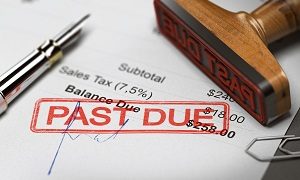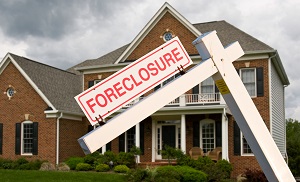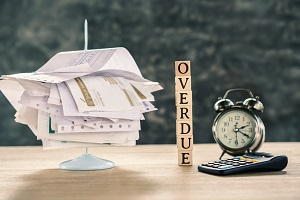Delinquent payments are one of the hardest things to deal with as an HOA board because you may be dealing with people who are your friends and neighbors. Although there are certain strategies for avoiding delinquent payments, every board will likely encounter this problem at some point. When you do, here is how you should deal with delinquent HOA dues.
Understanding Delinquent HOA Dues
Homeowners associations collect regular dues from members to fund various expenses related to the maintenance of the community. These expenses include but are not limited to: maintenance and repairs, security, trash removal, snow plowing, management fees, and insurance.
When owners pay their dues on time, it allows HOAs to budget more effectively and ensure projects don’t experience any delays. Late or missing payments can push the association to delay improvements or cut back on essential services. It can even result in special assessments.
What are delinquent HOA dues?
To put it simply, these are HOA dues and assessments that have gone unpaid. What constitutes as a delinquent payment varies from association to association. You will usually find this information in your HOA’s governing documents. Some associations only consider dues as delinquent if the resident fails to pay them for three consecutive months. Others have stricter guidelines.
What Happens If You Don’t Pay HOA Fees?

Your homeowners association should be treated by the board as a business. In so doing, you will be treating each homeowner the same. Leniency with one resident will lead to leniency with every resident, so be sure your board reacts consistently and quickly as soon as a payment is late. It is possible to be both firm and polite in your execution of the late payment policy.
Consistency and quick action can only do so much, though. Sometimes, homeowners are just too stubborn or forgetful. So, what are the possible repercussions a delinquent resident might face?
1. Delinquent HOA Dues Letter or Notice of Delinquency
The very first thing a delinquent homeowner might receive is a warning letter from the HOA board. This letter contains details of the resident’s late HOA dues, including the total amount owed and how long it has been outstanding. When drafting your delinquent HOA dues letter, make sure to outline all the possible consequences the homeowner might face. This way, they can’t claim they were not warned.
2. Late Fees
Delinquent homeowners should not get away with their violations scot-free. Your board must impose late fees on any resident who defaults on their assessments. Late fees may not seem like much at first, but they can quickly add up. For example, with a monthly fee of $200, a $50 late fee, and a monthly interest of 1.5%, a delinquent owner could easily rack up an extra $53 per month.
Make sure to have late fees outlined within your HOA’s governing documents, though. With tangible repercussions, homeowners are more likely to pay their dues on time.
3. Revoking of Rights
Homeowners residing within an HOA have certain rights, such as the right to vote for the board and the right to use community amenities. If a delinquent homeowner refuses to pay their dues, your board has the ability to suspend their rights until they settle their outstanding debt.
4. Collection Agency
Late HOA dues can cause a great many headaches for the HOA board of directors. Having to constantly remind the delinquent homeowner can get old really fast. To lighten your load, consider seeking professional help in the form of an HOA collection agency or management company.
5. Small Claims Court
Alternatively, you can file a suit in small claims court. A small claims court can add the power of the law behind your efforts. By doing so, you can force the delinquent homeowner to pay their HOA dues or negatively affect their credit score. Just make sure to check local laws for dollar limits, which vary from state to state.
6. Liens
 In the event that the homeowner doesn’t agree with your requests and negotiations, your options remain open to file a lien. A lien is a legal claim against a property. It is a tool that many HOAs use to collect unpaid fees.
In the event that the homeowner doesn’t agree with your requests and negotiations, your options remain open to file a lien. A lien is a legal claim against a property. It is a tool that many HOAs use to collect unpaid fees.
While liens have no immediate impact on a resident, it will make it hard for them to sell their property. They will need to satisfy the lien first before they can close the sale. It also makes it harder for owners to refinance their home when a lien is attached to it.
If your board chooses to file a lien against a homeowner, make sure to check state laws for the right format. You will also usually need to file the lien with your county recorder’s office. Some states require you to include specific details, such as North Carolina, while others are more forgiving.
7. Foreclosure
Of course, you can take liens one step further through foreclosure. Foreclosing on a lien guarantees that your HOA will get the money by deducting the amount of the debt from the profit earned upon the sale of the property.
There are three types of foreclosures: judicial, non-judicial, and quasi-judicial.
A judicial foreclosure requires the filing of a lawsuit through the court, while a non-judicial foreclosure doesn’t need to go through a court. As such, a judicial foreclosure tends to take longer than its non-judicial counterpart. Non-judicial foreclosures must adhere to specific procedures, which includes providing notice and time to pay.
Finally, a quasi-judicial foreclosure is a combination of both judicial and non-judicial procedures. It involves some oversight from the court but tends to move faster than a judicial proceeding.
How Late HOA Dues Affect the Association
 Homeowners associations rely on assessments or dues for income. It is what the board uses to pay for various things in and around the HOA, including repairs and maintenance. When an HOA comes up short on money, it is forced to do one of three things: cut financial corners, tap into its reserve fund, or charge special assessments.
Homeowners associations rely on assessments or dues for income. It is what the board uses to pay for various things in and around the HOA, including repairs and maintenance. When an HOA comes up short on money, it is forced to do one of three things: cut financial corners, tap into its reserve fund, or charge special assessments.
Cutting corners could risk the quality of maintenance and repair work within the community. This could lead to an unsafe environment. Tapping into the reserves is also an ill-favored choice. Your reserve fund exists for emergencies and future replacements. It is not supposed to cover operating expenses. Using your reserves will only force the board to charge higher fees the following year to make up for the loss. Finally, if your operating fund can’t cover daily expenditures, you may need to charge special assessments, which all homeowners dislike.
How to Avoid Late HOA Fees in Your Association
As you may know, prevention is always better than a cure. Similarly, it is better to avoid late HOA fees altogether than have to deal with them when they arise. Here are some ways you can prevent late HOA dues in your association:
1. Construct a Written Delinquency Policy
Establishing a written delinquency policy is a great way to discourage residents from getting behind on their payments. A written policy helps to inform incoming residents of the consequences of not paying their dues. The policy should lay out the escalating steps that will be taken in the event of late payment. Have a lawyer check the policy to make sure that it is watertight and reasonable.
2. Levy Fines
Make it very clear that a fine will be levied for late payments. The fee can be negotiated by the board and added to the policy. A fine can deter residents from defaulting on their dues. Just make sure the amount of the fine is reasonable. When in doubt, it is a good idea to check with your HOA lawyer on said fines.
3. Be Open to Payment Plans
 When it comes to how to collect delinquent HOA dues, many boards learn that it is best to work with the delinquent homeowner. The HOA should be open to a payment plan of the late dues in addition to their monthly payments. This type of open communication and compromise can do a lot in keeping the peace between the board and the resident. An amendment to the CC&Rs may be necessary to allow payment plans to be implemented.
When it comes to how to collect delinquent HOA dues, many boards learn that it is best to work with the delinquent homeowner. The HOA should be open to a payment plan of the late dues in addition to their monthly payments. This type of open communication and compromise can do a lot in keeping the peace between the board and the resident. An amendment to the CC&Rs may be necessary to allow payment plans to be implemented.
4. Invest in Online Technology
One of the best ways to get homeowners to pay their dues on time is to invest in online software that allows residents to set up an automatic monthly payment. Many homeowners simply forget to pay the dues, and this online option is convenient and easy to set up with the appropriate software or finance management company.
5. Outsource Dues Collection to a Remote HOA Management Company
Remote HOA management companies can work with you to create an HOA collections policy, as well as an HOA late fee policy. They can also assist you with all sorts of financial management tasks and back-office services, including dues collection. HOA boards are usually busy juggling multiple tasks at once, so contacting a virtual HOA management company will help immensely. Plus, remote services typically achieve great results for half the cost.
Can Homeowners File for Bankruptcy to Eliminate HOA Debt?
For homeowners facing significant HOA debt, bankruptcy can provide essential relief. Both Chapter 13 and Chapter 11 bankruptcy offer mechanisms to manage HOA dues and prevent foreclosure.
Chapter 13 Bankruptcy
In Chapter 13 bankruptcy, homeowners propose a repayment plan to address outstanding debts over a three-to-five-year period. This plan often includes overdue HOA fees, which are paid alongside other debts. Monthly payments are made to a trustee, who distributes funds to creditors, including the HOA. In some situations, it may be possible to craft a plan that prioritizes settling HOA liens while allocating minimal amounts to other unsecured creditors, such as credit card companies.
Chapter 11 Bankruptcy
Chapter 11 bankruptcy, while more complex, provides similar advantages and is designed for individuals or businesses with substantial assets and liabilities. Under Chapter 11, debts are restructured, allowing negotiations with creditors, including the HOA, to spread payments over an extended timeline. This option offers flexibility for managing significant financial obligations.
The Automatic Stay
Filing for Chapter 13 or Chapter 11 bankruptcy triggers an automatic stay, which halts all collection efforts, including foreclosure actions. This pause provides homeowners with time to evaluate their financial situation and develop a viable repayment plan as part of the bankruptcy process.
How Bankruptcy Impacts HOA Debt
Filing for bankruptcy significantly alters the way HOA debt is managed. One of the most immediate effects is the activation of an automatic stay, which halts all collection efforts, including foreclosure proceedings initiated by the HOA or other creditors. This legal pause provides homeowners with the necessary time to assess their financial situation and propose a repayment plan under Chapter 13 or Chapter 11.
Bankruptcy also allows for the reorganization of debts, with overdue HOA fees included in a multi-year repayment plan, making the financial burden more manageable. In certain situations, lien stripping may be possible, enabling the removal of junior liens, such as HOA liens, from the property. Additionally, homeowners are required to make ongoing payments. These incorporate current HOA dues and associated fees, addressing debts in a systematic way.
Avoid the Hassle, Pay Your Dues on Time
Delinquent HOA dues can be catastrophic to your association. They can destroy your annual budget and put you behind financially. As a board member, you should do your best to be firm, consistent, and prepared so that, if faced with this problem, you can respond quickly and appropriately.
If your board is finding it hard to collect delinquent payments, reach out to Clark Simson Miller. We offer collection services to HOAs and condominiums. Call us today at 865.315.7505 or contact us online to learn more!
RELATED ARTICLES:
- Problem With Late HOA Dues? Look Into An HOA Collection Agency To Help You
- How To Lower HOA Fees Without Huge Trade-Offs
- Can HOA Fees Go Up? Why And Why Not?

